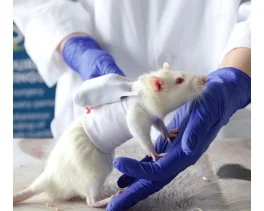Authors
Zakaria NH, Mohamad N, Bakar NHA, et al
Lab
Universiti Sultan Zainal Abidin (UniSZA), Kuala Terengganu, Terengganu, Malaysia
Journal
Electronic Journal of Biology
Abstract
Background: Morphine tolerance leads to decrease in analgesic effect of the drug, causing a need to increase the dose and eventually increased dependency. Previous studies demonstrated the involvement of morphine tolerance with decrease in antioxidant activities and increased oxidative stress. Honey, a traditional natural remedy possesses analgesic, antioxidant and neuroprotective effect against oxidative stress, suggesting its potential in reducing morphine tolerance. This study aimed to assess the effect of different A. dorsata honey doses on development of morphine tolerance in Sprague-Dawley rats.
Findings: Our results showed that dose 0.5, 1.5 and 2.5 g/kg significantly prevented the development of morphine tolerance compared to control group (p<0.05, p<0.001 and p<0.05, respectively).
Conclusion: A. dorsata honey can prevent development of morphine tolerance. This property highlights the potential of this honey type in the treatment of opioid tolerance and dependence.
BIOSEB Instruments Used
Cold Hot Plate Test (BIO-CHP)
Source :

 Douleur - Allodynie/Hyperalgésie Thermique
Douleur - Allodynie/Hyperalgésie Thermique Douleur - Spontanée - Déficit de Posture
Douleur - Spontanée - Déficit de Posture Douleur - Allodynie/Hyperalgésie Mécanique
Douleur - Allodynie/Hyperalgésie Mécanique Apprentissage/Mémoire - Attention - Addiction
Apprentissage/Mémoire - Attention - Addiction Physiologie & Recherche Respiratoire
Physiologie & Recherche Respiratoire




































 Douleur
Douleur Système Nerveux Central (SNC)
Système Nerveux Central (SNC)  Neurodégénérescence
Neurodégénérescence Système sensoriel
Système sensoriel Système moteur
Système moteur Troubles de l'humeur
Troubles de l'humeur Autres pathologies
Autres pathologies Système musculaire
Système musculaire Articulations
Articulations Métabolisme
Métabolisme Thématiques transversales
Thématiques transversales Congrès & Meetings
Congrès & Meetings 